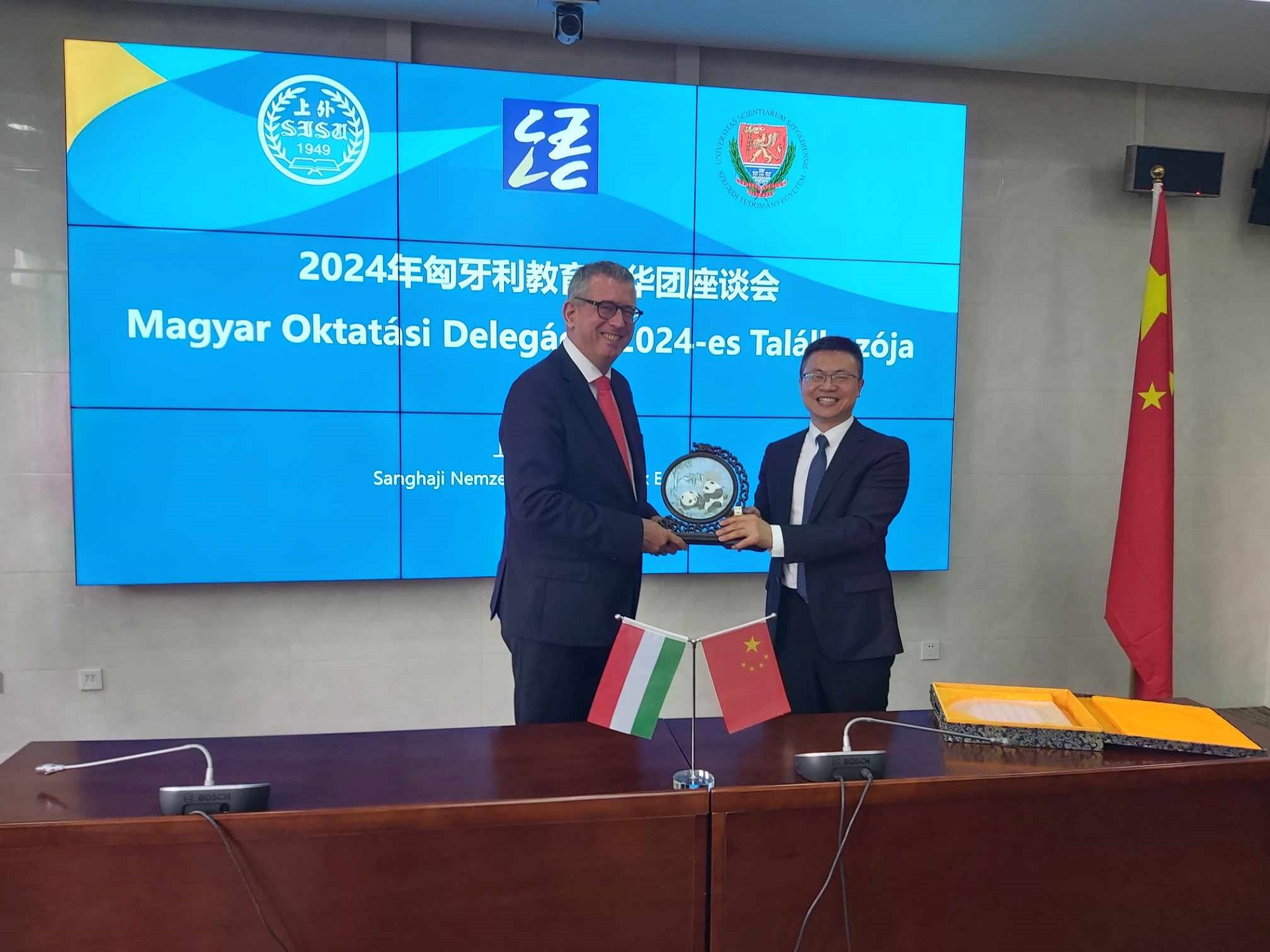
Prof. Dr. Péter Zakar, vice-rector for international and public relations of the University of Szeged, led the delegation that traveled to China at the invitation of the Shanghai International Studies University (SISU). The visit of Xi Jinping, the president of the People's Republic of China, to Hungary gave the meeting a special relevance, during which important agreements concerning higher education were reached between the two countries.
"Integrity, vision and academic excellence" is the motto of Shanghai International Studies University, or SISU, founded in 1979. SISU, one of the most significant higher education institutions in the Far East, and SZTE signed an agreement for the first time in 2011, which resulted in the establishment of the SZTE Confucius Institute in 2012, which plays a key role in teaching the Chinese language and promoting Chinese culture in Szeged. SISU is an internationally recognized and prestigious academic institution, which, due to its multidisciplinary and multicultural nature, is committed to training innovative professionals who can provide global answers to global challenges. SISU provides successful education in the humanities, social sciences, and natural sciences, as well as the arts, economics, management, law and engineering, language, and literature.
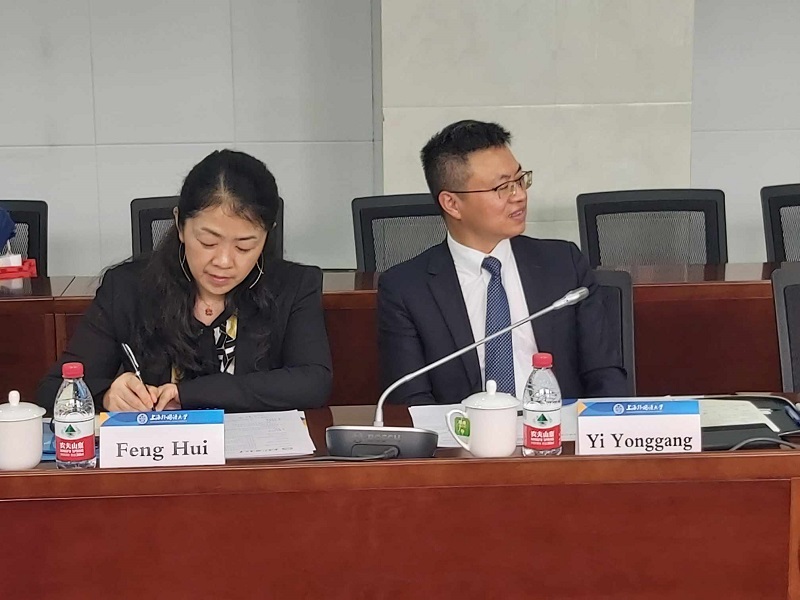
In recent years, SISU's importance has continued to grow with the increase in the number of language training programs, as well as the significant increase in the number of doctoral and master's programs, resulting in a more balanced educational structure. Currently, students from more than 100 countries come to Shanghai, who can choose from 54 languages, including Hungarian.
On May 11, 2024, the SISU Songjiang Campus hosted the delegation of the University of Szeged, including Yi Yonggang, SISU's vice-rector, and Feng Hui, director of SISU's Confucius Institutes Work Office. The Hungarian delegation, arriving to develop the cooperation established in 2011, was led by Prof. Dr. Péter Zakar, vice-rector for international and public relations at the University of Szeged.
Yi Yonggang, vice-rector of SISU, emphasized in his greeting that the timing of the meeting was the best possible since the leaders of China and Hungary met in Hungary in the same week and discussed the strengthening of relations between the two countries with promising results. He emphasized that two points of the diplomatic agreements specifically affect higher education. The senior official of the Chinese university expressed his hope that in the future more and more students and lecturers will be able to spend longer or shorter time at the other, and more and more people will be able to get to know the beauties of the Chinese and Hungarian language and culture.
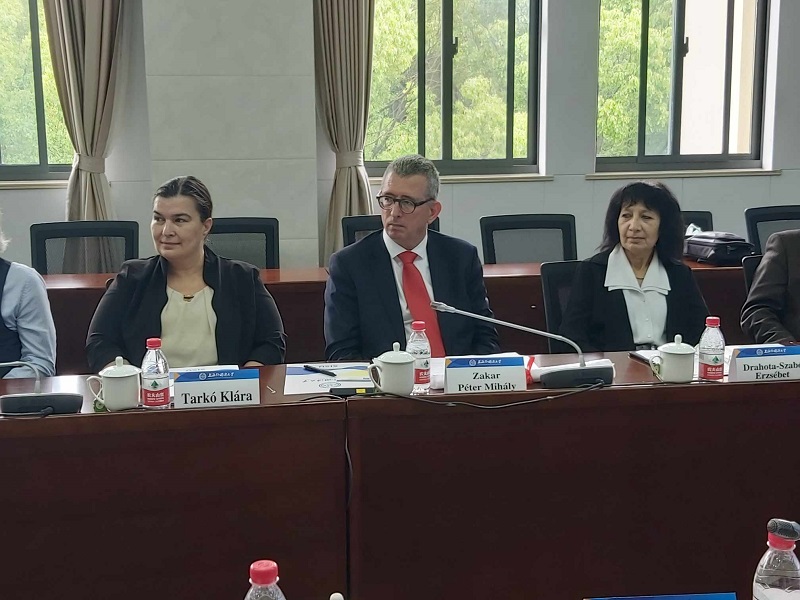
Péter Zakar briefly introduced the University of Szeged, emphasizing the points of connection with China, especially the activities of the SZTE Confucius Institute, which has been operating since 2012, and outlined SZTE's extensive international relations, focusing on the agreements concluded with Chinese universities.
– I already visited the Shanghai University of International Studies in 2019, I have many positive memories of that visit and I am happy to say that our relationship is alive and developing. We place special emphasis on the internationalization of our university, to this end we are open to expanding partnerships and developing exchange relationships. Based on the QS Ranking, the University of Szeged is the best Hungarian higher education institution, which has a unique infrastructure from which foreign students and lecturers who visit us can benefit a lot. ELI-ALPS also provides unique technology in Europe to researchers and educators in several scientific fields. Our two Nobel laureates, Albert Szent-Györgyi and Katalin Karikó, can also make our university attractive to Chinese students and professors, said the vice-rector.
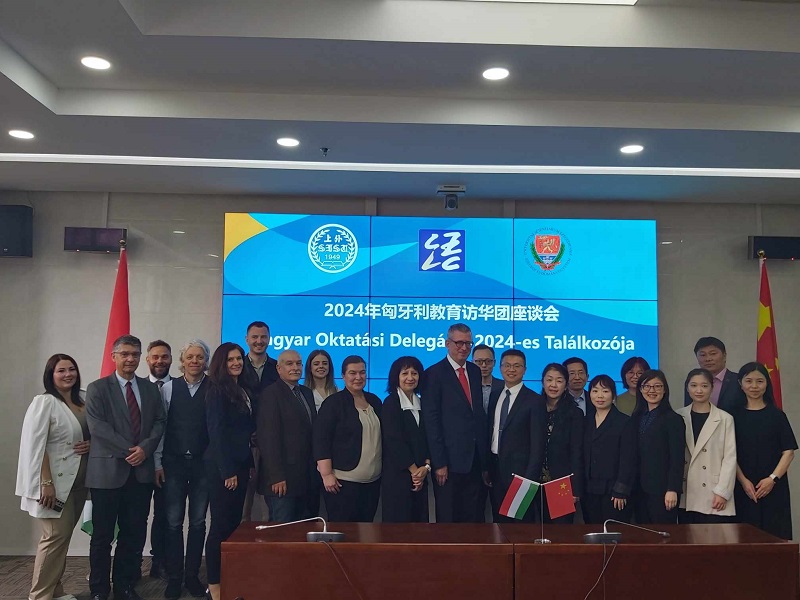
The partner schools of SZTE's Confucius Institute and representatives of the Eurasia Center also presented their results on Chinese language education and cultural familiarization, after which Song Xia, head of SISU's Hungarian Studies Department, spoke about the results of teaching the Hungarian language at SISU since 2016.
After the presentations, the representatives of the delegations discussed the situation of Hungarian language education in China in an informal conversation, as well as how cooperation can be developed in their own area. During the visit to the Far East, some of the delegation members held a sample class, and some participated in individual discussions with representatives of the relevant unit of the Chinese university.
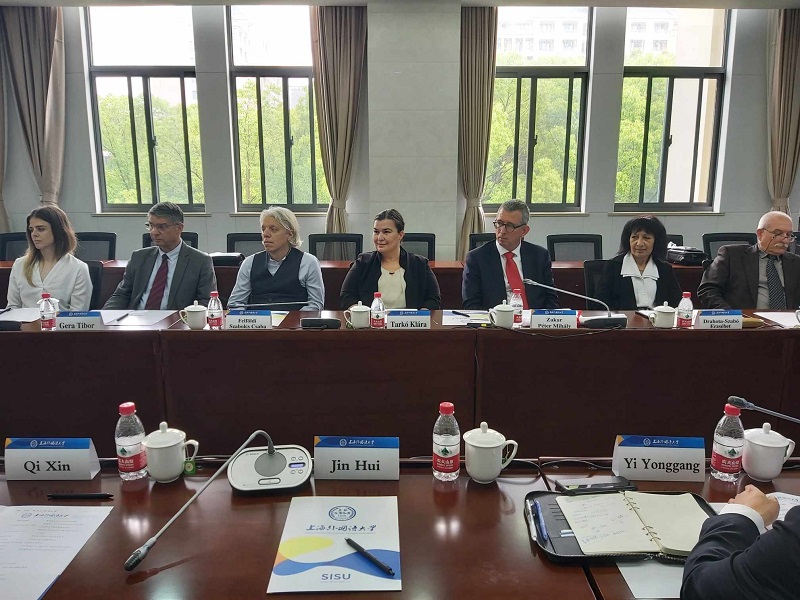
Members of the Hungarian delegation:
Prof. Dr. Péter Zakar, vice-rector for international and public relations at SZTE, Dr. Erzsébet Drahota-Szabó, general and scientific deputy dean of SZTE JGYPK, Dr. Klára Tarkó, vice-rector of education at SZTE JGYPK, Dr. Sándor Papp, professor at SZTE BTK, Dr. Szabolcs Felföldi, assistant professor at the Department of Archeology of SZTE BTK, Dr. Wang Rui, Chinese director of the SZTE Confucius Institute, Tibor Gera, director general of the Eötvös József High School in Szeged, Andrea Bartókné Gyöngyösi, headmistress of Kossuth Lajos Primary School in Szeged, Fanni Nyári, economic referent of the SZTE Confucius Institute, Alexandra Zoltai, researcher at the Eurasia Center of Hungary, vice president of the Hungarian-Chinese Friendship Association, the former Hungarian director of the SZTE Confucius Institute, and Slobodan Popovic, director of BGE OBIC.
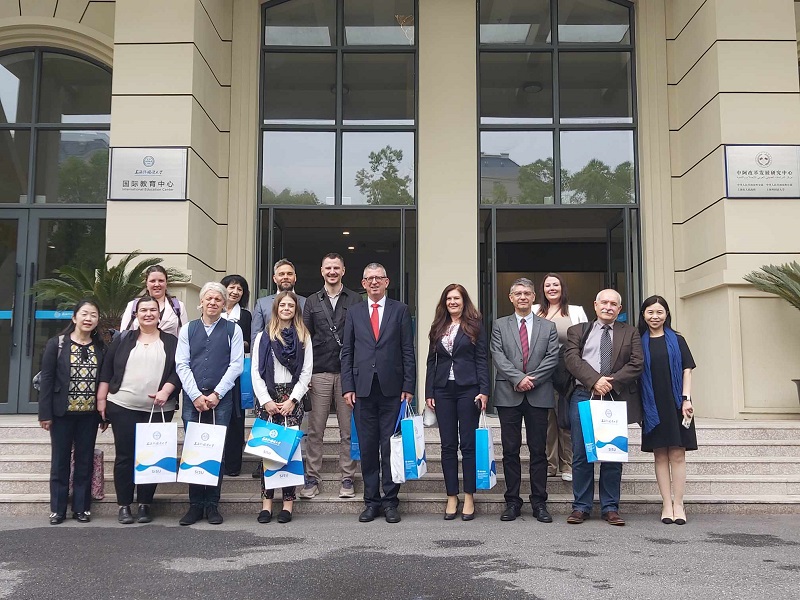
After Shanghai, the delegation will travel to Xi'an (China) and meet representatives of Shaanxi Normal University.
Featured image: Prof. Dr. Péter Zakar, SZTE vice-rector for international and public relations, hands over the gift of the SZTE Confucius Institute to Yi Yonggang, vice-rector of SISU, at the SISU Songjiang Campus on May 11, 2024.
Photo and text: Ferenc Lévai

